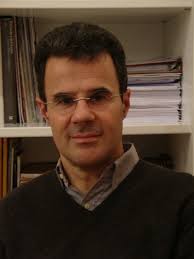On Monitoring Covid-19 Policy Interventions. Q&A with Emanuela Raffinetti and Paolo Giudici
The empirical findings show that: starting from 13 April 2020, Italy and Germany have achieved at least a uniform or slightly decreasing trend of the contagion dynamics; China and Korea appear as the most effective in containing the contagion; USA do not perform well due to an evident spread in the number of contagions.
Q1. You have implemented a statistical tool to compare different responses to the COVID-19 pandemic. What is the aim of the tool?
Emanuela Raffinetti: The aim of the tool is to exploit a new concordance measure (called Rank Graduation measure) in order to assess the existence of concordance or discordance relationship between the variable representing the daily number of Covid-19 positive cases (contagions) and the variabile representing the time (the days of the occurred contagions). The presence of a concordance relationship detects an increasing Covid-19 dynamics over time, while the presence of a discordance relationship detects a decreasing Covid-19 dynamics over time.
Q2. What parameters did you use to compare various strategies for Covid-19 contagion control ?
Emanuela Raffinetti: The effectiveness of the strategies implemented by the considered countries (China, Italy, Germany, Korea and USA) to control the pandemic growth were evaluated by referring to the C (concordance) curve behavior, together with the RG measure. Based on the position of the C curve with respect to the linear curve (related to the scenario of a uniform increase of Covid-19 cases), details on the speed of the contagion containment processes are provided. A ranking of the best performing countries in controlling the pandemic phenomenon can be derived and employed for the detection of the most effective implemented health policy measures.
Q3. What main results did you obtain?
Emanuela Raffinetti: The empirical findings show that: starting from 13 April 2020, Italy and Germany have achieved at least a uniform or slightly decreasing trend of the contagion dynamics; China and Korea appear as the most effective in containing the contagion; USA do not perform well due to an evident spread in the number of contagions.
Paolo Giudici This proposal is a starting point which shows how to read policy effectiveness not only using R0 (a static measure) but instead a dynamic measure that can assess the impact of policies on the velocity of the virus spread rather than on its level. It can be made more complex and realistic adding covariates from economics and epidemiology – Food for the periscope project collaborative research !
References
- Monitoring Covid-19 Policy Interventions. LINK to paper: https://www.frontiersin.org/articles/10.3389/fpubh.2020.00438/full
- European Commission approved PERISCOPE (PAN-EUROPEAN RESPONSE TO THE IMPACTS OF COVID-19 AND FUTURE PANDEMICS AND EPIDEMICS), a large-scale research project that brings together 32 European institutions and is coordinated by the University of Pavia. Link to press release.

Emanuela Raffinetti is Assistant Professor of Statistics at the Department of Economics, Management and Quantitative Methods of the University of Milan (Italy). After her Degree in Business Economics (Finance) at University of Pavia (Italy) in 2005, in 2005/2006 she attended the Second Level University Master in “Methods for Management of Complex Systems” at the Institute for Advanced Study of Pavia. She then got a scholarship at the PhD program in Statistics at the Bocconi University of Milan (Italy) and in 2011 she obtained her PhD degree. Her research activity is mainly focused on: Explainable Artificial Intelligence (XAI) methods; Machine Learning model validation methods; assessment of operational and cyber risks; dependence analysis; dependence, concordance and discordance measures; ordinal variable treatment and models for ordinal variables; inferential issues when dealing with dataset of high dimensions; sub-sampling methods; inequality measures in income distributions; assessment of quality and customer satisfaction; assessment of the university and educational systems.

Paolo Giudici Professor of Statistics and Data Science at the Department of Economics and Management of the University of Pavia. Academic supervisor of about 180 Master’s students and of 15 Phd students, currently working in the financial industry, in IT/consulting companies or as academic researchers.
Author of several scientific publications (83 in Scopus, with 1180 total citations and an h-index of 20). Coordinator of the new EU Periscope project.